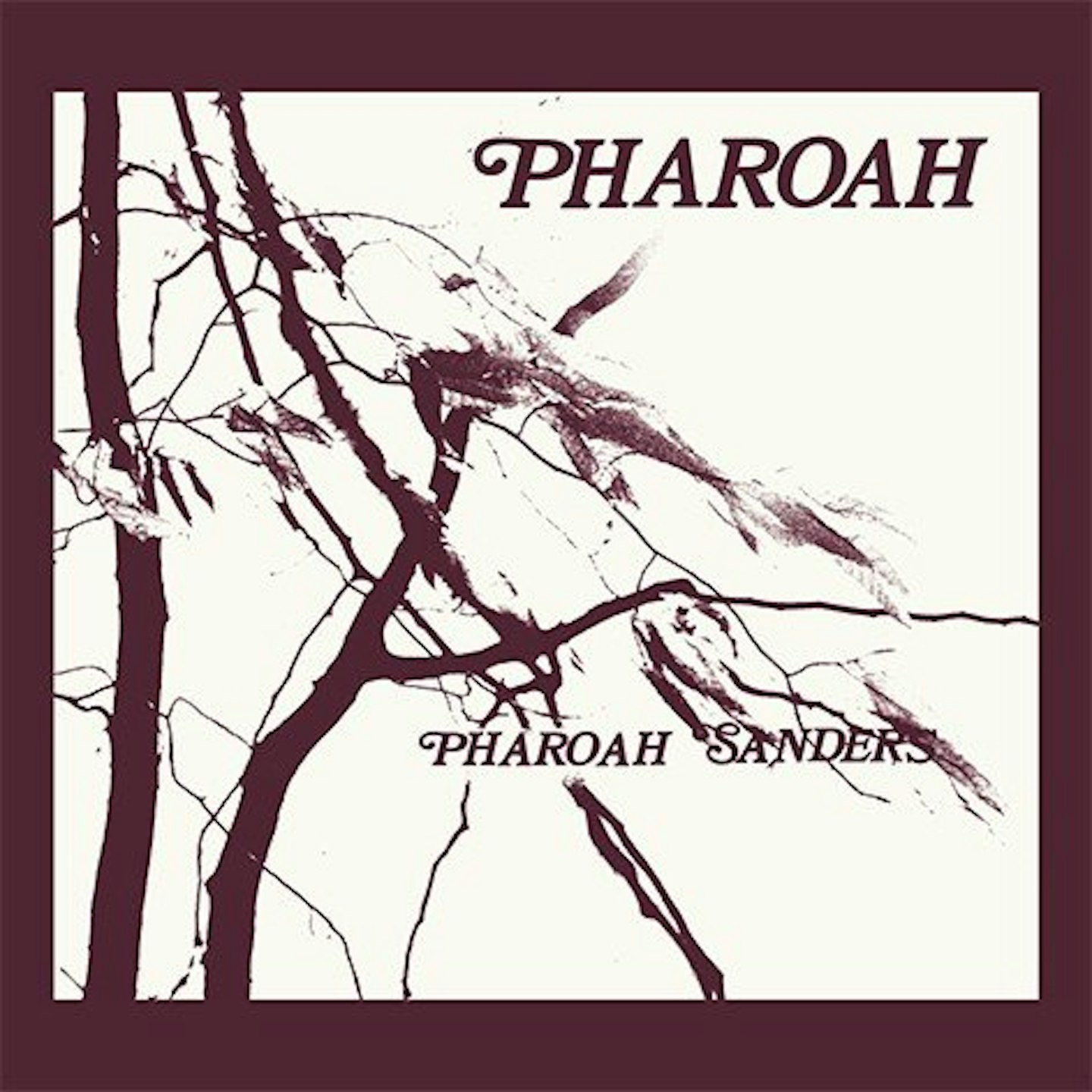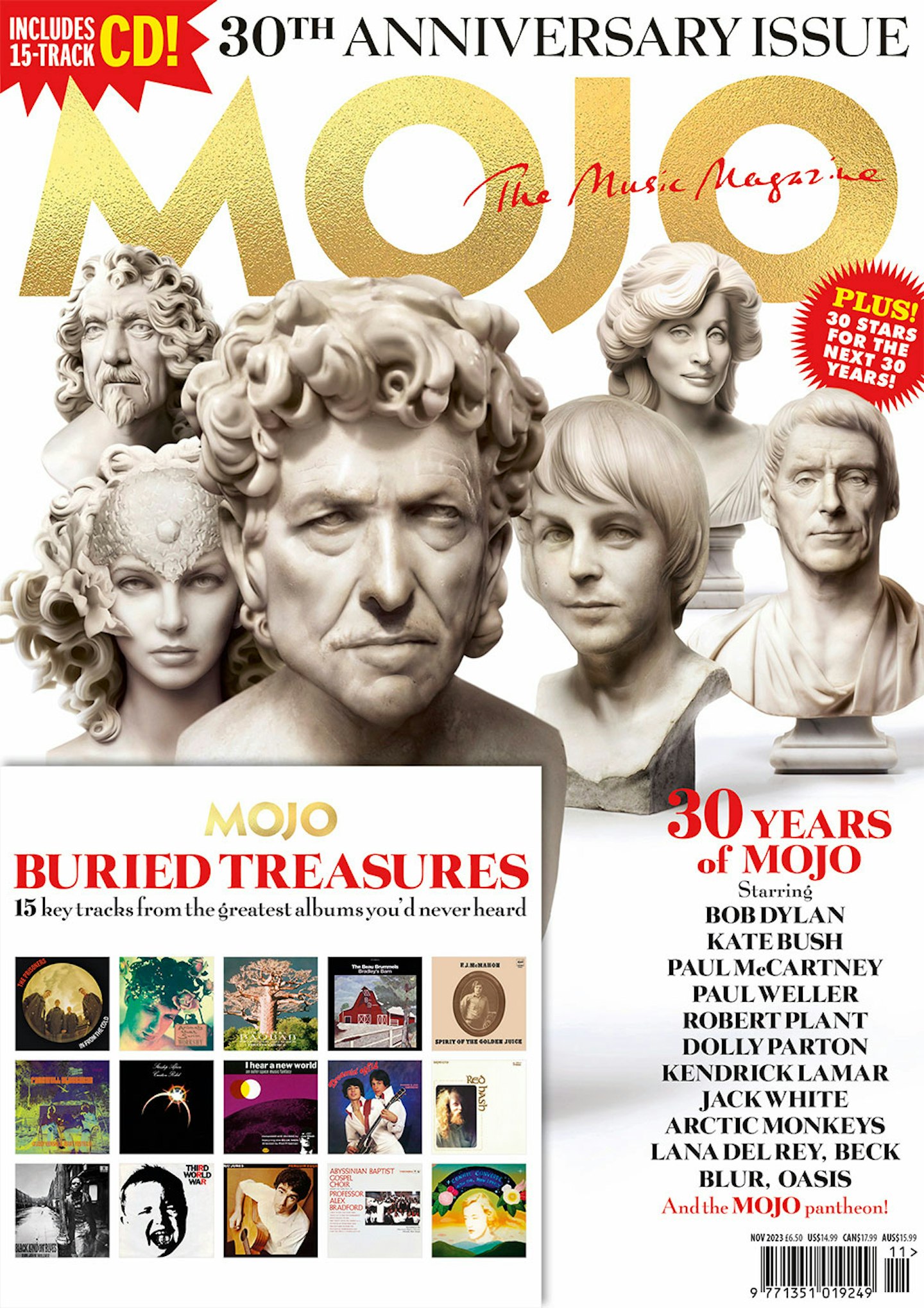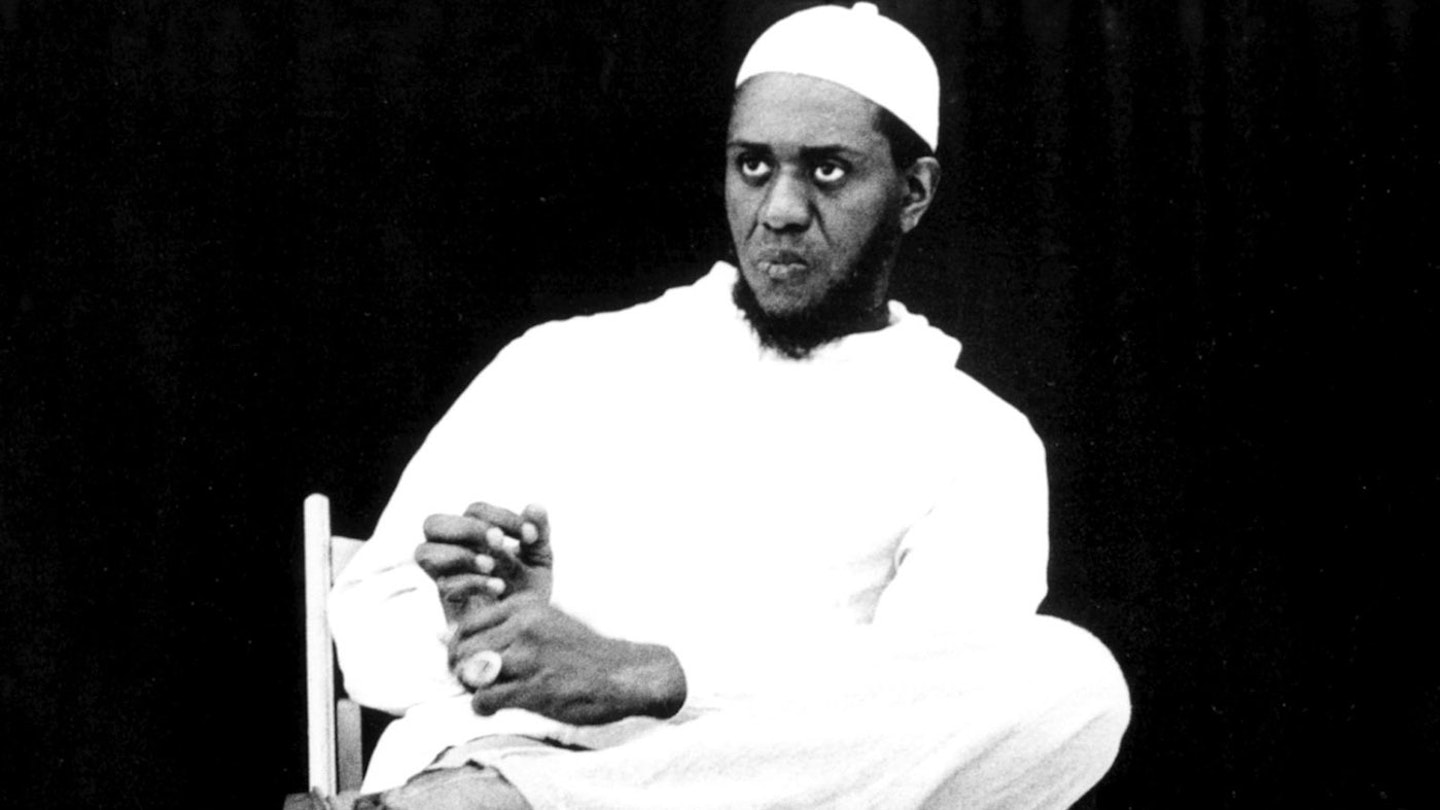Pharoah Sanders
Pharoah ★★★★★
Luaka Bop

PERHAPS YOU KNOW the feeling. There’s a record you really need, but the original pressings are scarce, to say the least, and normally sell for a few hundred pounds. One day, you learn that a reissue has finally surfaced, albeit on a label you’ve never heard of before. You buy it, the pressing’s OK, and you add it to your collection. But then, a while later, you discover you’ve bought a nicely presented bootleg: an official version remains frustratingly out of reach; the collection incomplete.
The last time this writer got caught out was with a copy of Pharoah Sanders’ 1977 album, Pharoah. Over the past few years, the market for Sanders’ music has become more intense, thanks to the vogue for spiritual jazz – aquesting imperative and loosely Eastern musical augmentation, playing that vacillates between the meditative and epiphanic – and his feted 2021 album with Floating Points, Promises.
Pharoah, though, has remained legally elusive, until the welcome arrival of this remastered and expanded version from Luaka Bop. In that time, it’s also been raised to something of a sacred artefact even in the Sanders canon. For those who came to his music via the ambient manoeuvres of Promises, it’s a logical next step. Side one’s Harvest Time (the album is often erroneously referred to as ‘Harvest Time’) takes 20 and a half minutes to work its way through myriad delicate variations on a two-chord vamp. There’s a restrained guitar groove from Tisziji Muñoz, weaving in and out of Steve Neil’s equally understated bass line. Organ comes from Clifton ‘Jiggs’ Chase, who’d go on to produce and co-write Grandmaster Flash’s The Message. Harmonium shade is provided by Sanders’ then wife, Bedria, apparently encountering the instrument for the first time. No drums. And Sanders himself, conjuring phrases out of his tenor as subtle as breaths, privileging his most sensuous playing rather than his fearsome capacity for skronk.
“I just have to make sure I mean every note…” Pharoah Sanders Remembered.
The whole feels lighter than air. In 2021, Floating Points’ Sam Shepherd told MOJO about his own experience in the studio with Sanders. “I feel there’s a pressure within those environments to get stuff done,” he said. “Whereas with Pharoah it feels the opposite. There’s no rush. There’s a peace to it. And he listens and listens and listens… then plays it just the once. And it bangs!” That’s what Harvest Time sounds like, too: an ethereal masterpiece, created when its maker was ready, spontaneously, and intuitively.
Sanders, though, was less positive about the recording, perhaps compromised by the tricky relationship he had with the original label, India Navigation. It sits at an interstitial point in his career: three years after his seismic run of Impulse! albums had come to an end; mere months before his career would take a radical commercial turn with the slick soul-jazz of [Love Will Find A Way]{href='https://open.spotify.com/album/0orhXwlJ4LCfDwMYVAXsdW?si=E5biF8UkTjyp8-8gEvJhkQ' }. Love Will Find A Way itself actually makes its first appearance on side two of Pharoah, pleasingly unpolished, with a Muñoz guitar solo that makes explicit the bandleader’s original plan to make a rock record, and an ecstatic vocal from Sanders himself that works as a bridge back to his earlier collaborations with Leon Thomas like The Creator Has A Master Plan (from 1969’s Karma). A third track, Memories Of Edith Johnson (Sanders’ aunt) is stately, churchy, a benediction akin to Let Us Go Into The House Of The Lord (from 1970’s Deaf Dumb Blind __.
The Luaka Bop Pharoah doesn’t end there, however. Two more versions of Harvest Time show how Sanders’ improvised studio beatitude could solidify into a surprisingly resilient live highlight. The takes here come from a European tour in August 1977, backed by a more conventional line-up: Sun Ra Arkestra alumni Hayes Burnett on bass and Clifford Jar vis on drums; the unknown Khalid Moss on piano. With this incarnation, Har vest Time becomes less of an outlier in the Sanders catalogue, more part of a continuum. The driving 10-minute take from a jazz festival in Willisau, Switzerland harks back to Sanders’ Impulse! years, with the saxophonist drifting into an astonishingly measured series of free ululations at the seven-minute mark. An 18-minute version from Antwerp, meanwhile, is generally funkier and smoother, signposting where Sanders’ music was headed for the next few years.
Together, they provide that most valuable kind of bonus material: tracks that enrich our understanding of music we already know. They flesh out the story of how an album long consigned to marginalia – by neglect and by rarity – deserves a place front and centre among Pharoah Sanders’ very finest records. It’s time, finally, to reap what he sowed.
Pharoah is out now on Luka Bop
Read MOJO's verdict on this month's best new music in the latest issue, featuring Bob Dylan, Paul McCartney, Paul Weller, Kate Bush, Robert Plant, Dolly Parton and more. More info and to order a copy HERE!

